 In our recent review of Robert Redford’s new movie, All is Lost, about a solo sailor in a sinking sailboat, we noted various glitches, mistakes and omissions which distracted from an otherwise gripping and engaging movie. Readers who commented on the post have added extensively to the list of problems with the film.
In our recent review of Robert Redford’s new movie, All is Lost, about a solo sailor in a sinking sailboat, we noted various glitches, mistakes and omissions which distracted from an otherwise gripping and engaging movie. Readers who commented on the post have added extensively to the list of problems with the film.
One topic that has not been raised was the relatively brief period of time that the unnamed sailor played by Redford spent in the life raft. The movie starts in a life raft with a voice-over in which the sailor is saying goodbye to unidentified loved ones. A graphic then appears on the screen which says “Eight Days Earlier,” and the movie begins. From the events that take place, it looks like the sailor cannot have been in the life raft for more than four or five days until he has concluded that “all is lost” writing a note to loved ones that he throws overboard in a glass jar. It is unclear by the end of the movie how many more days have passed but as evidenced by the lack of a growth of beard, it can’t be many more.
One of our chief complaints about All is Lost was the absence of emergency electronic signalling devices, such as an EPIRB (Emergency Position Indicating Radio Beacon.) Fortunately, these days, with satellite communications, most sailors who get into trouble can call for help electronically. This is, however, a fairly recent advance. For virtually all of history, sailors in lifeboats have been on their own. Here is a look back at three sets of surviving sailors who spent far more time in their life rafts than the the sailor in “All is Lost.”
Continue reading →

 I recently came across a video of the Viking longship replica
I recently came across a video of the Viking longship replica  Great news. The captain and chief engineer of the 222′ supply boat C-Retriever, who were kidnapped off the coast of Nigeria on October 23th, have been released following the payment of ransom. The two Americans are reported to be in good health and en-route to the United States. The supply boat is owned Edison Chouest Offshore, based in Louisiana.
Great news. The captain and chief engineer of the 222′ supply boat C-Retriever, who were kidnapped off the coast of Nigeria on October 23th, have been released following the payment of ransom. The two Americans are reported to be in good health and en-route to the United States. The supply boat is owned Edison Chouest Offshore, based in Louisiana. The
The 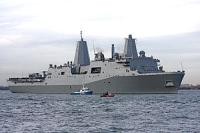 The
The


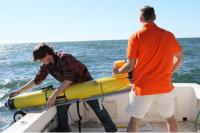 Robots are being increasingly being used to gather data at sea. Here is a fascinating undersea glider design in use by the
Robots are being increasingly being used to gather data at sea. Here is a fascinating undersea glider design in use by the  On Friday morning, local time, Super Typhoon Haiyan came shore in the central Philippines. With an estimated maximum sustained winds of 195 mph and gusts to 235 mph,
On Friday morning, local time, Super Typhoon Haiyan came shore in the central Philippines. With an estimated maximum sustained winds of 195 mph and gusts to 235 mph, 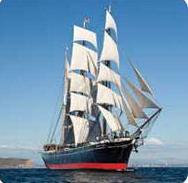 On November 14th, 1863, on the Isle of Man in Great Britain, the shipyard of Gibson, McDonald & Arnold, Ramsey launched the 1,200 tonne full rigged iron ship,
On November 14th, 1863, on the Isle of Man in Great Britain, the shipyard of Gibson, McDonald & Arnold, Ramsey launched the 1,200 tonne full rigged iron ship, 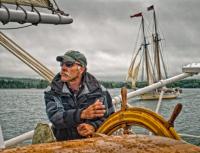
 The U.S. Navy’s new supercarrier,
The U.S. Navy’s new supercarrier,  In August we posted about
In August we posted about 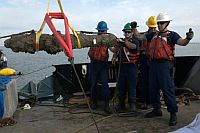
 My younger son, a senior in high school, mentioned to me a few mornings ago that the newest version of the historical action-adventure video game,
My younger son, a senior in high school, mentioned to me a few mornings ago that the newest version of the historical action-adventure video game,  In our
In our